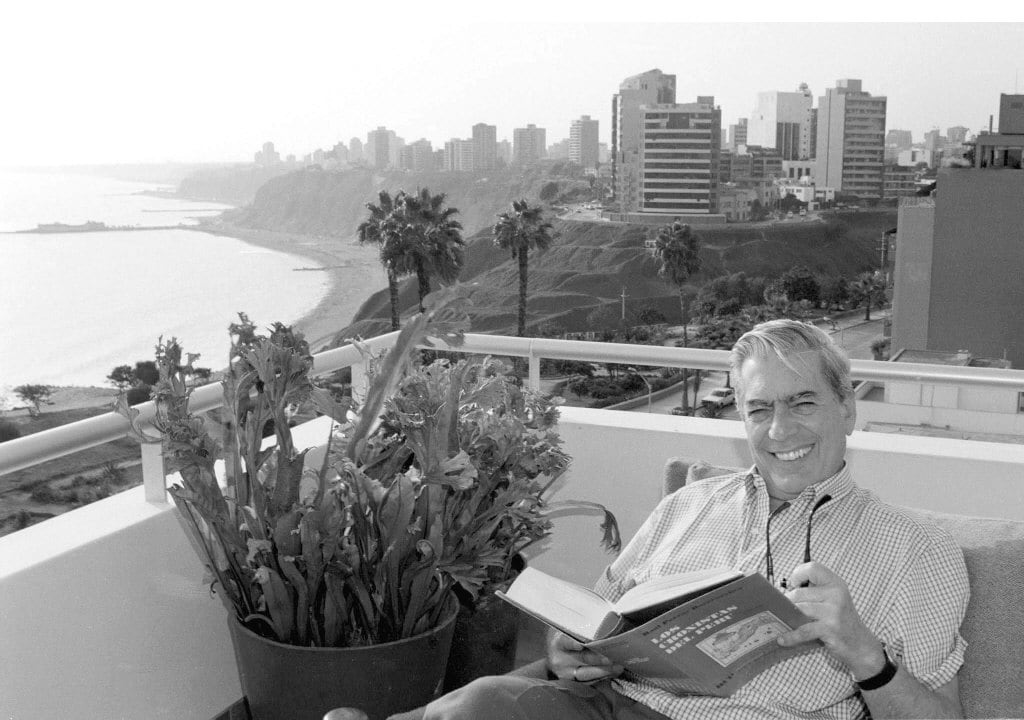The disappearance of Mario Vargas Llosa, who died on Sunday at his home in Lima (Peru) at age 89, leaves several generations of writers and editors born in their homeland that have built their professional careers under the colossal influence of the colossal influence of the Nobel Prize for the Nobel of Literature of 2010. Five of them share with this newspaper their reflections on the literary legacy and the political-intelectual inheritance of the author of the author of Conversation in the cathedral o THE WAR OF THE END OF THE WORLD.
Jeremiah Gamboa
“He taught us that an amazing work could be written using Peruvian materials”
Literary legacy: “I highlight the number of writers of my generation and later, especially men, whose vocations were forged in the light of their career. From the writer’s position as a practical and self -sufficient figure. Juan Gabriel Vásquez, in Colombia, Alberto Escuet, in Chile, have set the idea of devoting themselves to literature for his figure. And in this, the most influential book is The fish in water. It led me to turn all that into action. It became a writer. He also did not show that an amazing, modern work could be written, using Peruvian materials. That had only done Cesar Vallejo before with poetry. The roof has gone in which we shelter. It was very generous with other writers, something that contrasts with the image distant from success. ”
Political-intellectual legacy: “It was that fighter, citizen man, who thought of everything. There was even a time when he decided presidents. After the coup d’etat of Fujimori in 92, he stands against and becomes a democratic guarantor. He supports Alejandro Toledo and later to Ollanta Humala, meets him, convinces him to approach the center, and ends up winning the elections. He is the last powerful writer.”
Gustavo Faverón
“Instead of writing novels, I wrote worlds”
Literary legacy: “His novels are like great intuitive hypotheses about the horrors of the social world: the fright of civilization and the sinister costumes of barbarism. Only someone could write them with an overflowingly original aesthetic talent: a Tolstoyan ambition, a Cervantine imagination, a Rabelesian humor and a skill for textual architecture that any of the others would have already wanted. Time appears here a writer with portentous ambitions.
Political-intellectual legacy: “That constant rebellion against authoritarianism, the dictatorship, militarism: that rebellion that he called freedom disappeared in Peru a long time ago, since the policy was entirely replaced by such a burden of criminality that has left the whole country without hope. At the beginning and end of that race, he made mistakes, he slid towards one end. The rest of his life was impeccably coherent. Mixture of scholarship and quixoticism, for the frightened enthusiasm and the distressing joy with which he threw himself to read philosophy books such as novels and novels as books of philosophy.
Juan Manuel Robles
“It is omnipresent in our way of learning to read and write”
Literary legacy: “Mario Vargas Llosa is omnipresent in our way of learning to read and to write, to build a world with words although many of us try to mark distances to create their own style. When you arrived in the literary world, there was already a very based Vargasllosian world. He is the founder of the idea of being a universal Peruvian novelist. The last writer celebrity of a Peru that no longer exists.”
Political-intellectual legacy: “In addition to the presidential candidate, he was one of the ideological founders of neoliberalism in Peru. But at the same time, the writer in a voice in the public discussion, such as García Márquez or Saramago. He had swings. It was essential to take Fujimori out of power. But for many he had become someone who defended the indefensible, the visible face of the ultra -right. Win literary appreciation for him.
Jerónimo Pimentel
“I highlight the intellectual honesty that allows you to dissent”
Literary legacy: “Describing Vargas Llosa is like describing a continent. Too complex, vast. Every peruvian letter or Peruvian writer is born with the first novel that addresses. One thus accesses a universal idea of Peruvianity, which then extends beyond. It is an initiatory, baptismal principle. There the reader and future Peruvian writer was born. This has passed this of the sixties until now. leaves”.
Political-intellectual legacy: ”He never feared change. He is associated with a liberal political position, although too close to the right, but anyone who knows can see an honest curve from his Castro enthusiasm, to the disenchantment and reading of Popper and Hayek, which leads him to a liberal center. Successors ”.
Alonso Cueto
“His political life is an extension of the experiences of his rebel characters”
Literary legacy: “He summarized the national, cultural, ethnic variety of the country and sought in that maze of differences and contrasts a vision of the human being. The fundamental idea is that we are all born in a world where we have to face a law or authority and we have to solve as we face. Through the opposition or evade it with art, he made both. occur in Paris or London.
Political-intellectual legacy: The idea that Sartre and Zavala had, in Conversion in the cathedral, es That you have to go to action, and that is what Vargas Llosa did. His political life is an extension of the experiences of his rebel characters. Assumes a fight against established ideas. One could or did not agree with his ideas, but you could never deny that they were sincere and honest, there was never an opportunism behind them. ”

